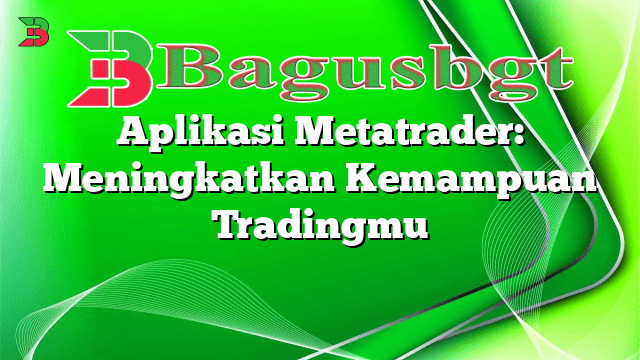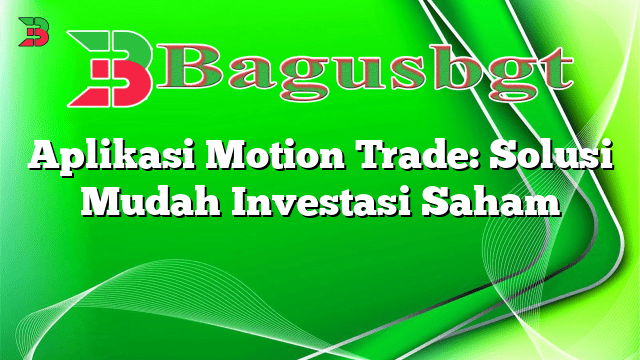Hello readers,
When it comes to forex trading, having the right tools at your disposal is essential for success. These tools not only help you make informed trading decisions but also improve your overall trading experience. In this article, we will explore the various forex trading tools available in the market, their advantages, disadvantages, and alternative options. So, let’s dive in and discover the world of forex trading tools!
1. Trading Platforms
A trading platform is a software that allows traders to buy and sell currencies in the forex market. It provides access to real-time market data, charts, technical indicators, and order execution capabilities. Popular trading platforms like MetaTrader and cTrader offer advanced features and a user-friendly interface. However, some platforms may have limited customization options or require a subscription fee.
2. Economic Calendars
Economic calendars are essential tools for forex traders as they provide information about upcoming economic events, such as interest rate decisions, GDP releases, and employment data. These events have a significant impact on currency prices. By staying informed about the economic calendar, traders can anticipate market movements and plan their trades accordingly. However, economic calendars may not always accurately predict market reactions, leading to potential trading risks.
3. Forex Signals
Forex signals are alerts or recommendations generated by professional traders or automated systems. These signals indicate potential trading opportunities in the market. By subscribing to a reliable forex signal service, traders can receive real-time notifications about entry and exit points, stop-loss levels, and take-profit targets. However, it is important to note that forex signals are not foolproof and should be used in conjunction with other analysis techniques.
4. Technical Analysis Tools
Technical analysis tools help traders analyze historical price data and identify patterns or trends in the market. These tools include indicators, oscillators, and charting techniques. By using technical analysis, traders can make informed decisions about when to enter or exit a trade. However, relying solely on technical analysis may lead to false signals or missed opportunities.
5. Trading Robots
Trading robots, also known as expert advisors (EAs), are software programs that automatically execute trades based on predefined trading rules. These robots can analyze the market, identify trading opportunities, and place trades on behalf of the trader. While trading robots can save time and eliminate human emotions from trading decisions, they are not foolproof and may require continuous monitoring and adjustment.
6. Risk Management Tools
Risk management tools help traders assess and control their exposure to potential losses. These tools include stop-loss orders, take-profit orders, and position size calculators. By using risk management tools effectively, traders can protect their capital and minimize losses. However, improper use or reliance solely on risk management tools may lead to missed profit opportunities.
7. Trading Journals
A trading journal is a record-keeping tool that allows traders to track and analyze their trading activities. By maintaining a trading journal, traders can identify their strengths and weaknesses, learn from past trades, and improve their trading strategies. However, maintaining a trading journal requires discipline and time commitment.
8. News Feeds
News feeds provide traders with real-time news and analysis related to the forex market. By staying updated with the latest news, traders can make informed decisions and react quickly to market events. However, news feeds may sometimes be biased or conflicting, leading to confusion or erroneous trading decisions.
9. Trading Simulators
Trading simulators allow traders to practice their trading strategies in a risk-free environment. These tools provide a simulated trading experience using historical market data. By using trading simulators, traders can gain practical experience, test different strategies, and build confidence before trading with real money. However, trading simulators may not accurately replicate real market conditions.
10. Educational Resources
Educational resources, such as online courses, webinars, and tutorials, play a crucial role in enhancing traders’ knowledge and skills. These resources provide valuable insights into various trading strategies, technical analysis techniques, risk management principles, and market psychology. However, it is important to choose educational resources from reputable sources to ensure the quality and accuracy of the information.
Alternative Options
Aside from the aforementioned forex trading tools, there are other alternative options available in the market. These include social trading platforms, which allow traders to replicate the trades of successful traders, and algorithmic trading systems, which use complex algorithms to automate trading decisions. Each alternative option has its own advantages and disadvantages, and traders should carefully evaluate their suitability based on their trading goals and preferences.
Forex Trading Tools Comparison
Tool |
Advantages |
Disadvantages |
|---|---|---|
Trading Platforms |
Real-time data, advanced features |
Limited customization, subscription fees |
Economic Calendars |
Market insights, event notifications |
Inaccurate predictions, potential risks |
Forex Signals |
Professional recommendations, real-time alerts |
Not foolproof, should be used with caution |
Technical Analysis Tools |
Pattern identification, informed decisions |
False signals, missed opportunities |
Trading Robots |
Automated trading, emotion-free decisions |
Continuous monitoring, adjustment required |
Risk Management Tools |
Loss protection, capital preservation |
Missed profit opportunities, improper use |
Trading Journals |
Self-analysis, improvement opportunities |
Requires discipline, time commitment |
News Feeds |
Real-time news, market analysis |
Biased or conflicting information |
Trading Simulators |
Practice, strategy testing |
May not replicate real market conditions |
Educational Resources |
Knowledge enhancement, skill development |
Quality and accuracy concerns |
Frequently Asked Questions
Q: Can I use multiple forex trading tools simultaneously?
A: Yes, traders often use a combination of different tools to enhance their trading experience. However, it is important to understand how each tool works and their potential limitations.
Q: Are forex signals reliable?
A: While forex signals can provide valuable insights, they should be used with caution. Traders should conduct their own analysis and consider other factors before making trading decisions based solely on signals.
Q: Do I need to pay for forex trading tools?
A: Some forex trading tools are available for free, while others may require a subscription or one-time payment. It is important to evaluate the features and benefits of each tool before making a purchase.
In Conclusion
Forex trading tools are invaluable assets for traders seeking success in the dynamic forex market. From trading platforms to risk management tools, each tool offers unique advantages and disadvantages. By understanding these tools and their functionalities, traders can make informed decisions, minimize risks, and maximize their trading potential. Remember, the key to successful trading lies not only in the tools you use but also in your knowledge, experience, and discipline. Happy trading!
 Bagus Banget Kumpulan Informasi terbaru dari berbagai sumber yang terpercaya
Bagus Banget Kumpulan Informasi terbaru dari berbagai sumber yang terpercaya



